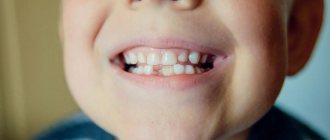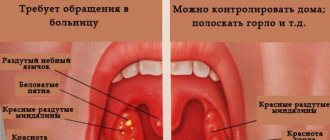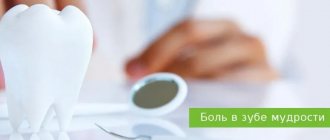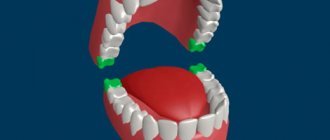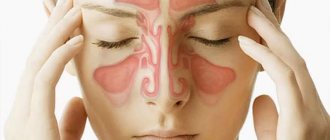October 27, 2019
Many people are interested in whether a tooth can hurt their ear. Indeed, such a situation can easily happen, because everything in the body is interconnected. And we should not forget the fact that almost the entire maxillofacial apparatus is covered by branches of the trigeminal nerve, which can react to any disturbance with inflammation or pain. And because the tooth hurts the ear, the clinical picture may be unclear, so some patients are in no hurry to visit the dentist, which only aggravates the course of the disease, believing that the cause lies elsewhere. The editors of the UltraSmile.ru portal offer for consideration the most common situations when these two phenomena - ear and tooth pain at the same time - are interconnected.
Often pain in the tooth and ear are interrelated
Comments
I can’t understand, my tooth hurts and that’s why it radiates into my ear. Or, on the contrary, the ear hurts and it hurts the tooth. Which doctor is better to go to?
Nathan (02.11.2019 at 16:37) Reply to comment
- Dear Nathan! After reading our article, you should have realized that pathology can be caused by completely different reasons. Only a doctor after examination can determine the true one. In your case, it is recommended to first visit two specialists: a dentist and an otolaryngologist. If these doctors do not find anything, then further examination by an orthopedist or neurologist may be required.
Editorial staff of the portal UltraSmile.ru (09.11.2019 at 09:14) Reply to comment
Ear and tooth hurt. I did an independent examination in front of the mirror, all the teeth in my mouth were intact, there were no holes. I haven’t gotten my ticket to the ENT specialist yet; in our city it’s a big problem to get to see this specialist for free. To avoid pain, I take pills, my grandmother also advises warming my cheek, supposedly this helps. Is it possible to do this?
AlisaV. (11/26/2019 at 12:19 pm) Reply to comment
- Dear Alisa! If you have not noticed any pathologies externally, this does not mean that you do not have dental problems. For example, it is almost impossible for the patient to notice a cyst in the early stages on his own. Therefore, it is still recommended that you go to the dentist. As for warming up the cheek, this is strictly forbidden, because... if the inflammatory process is to blame, then the infection, when warmed up, can spread through the bloodstream to the surrounding tissues, and your condition will only worsen.
Editorial staff of the portal UltraSmile.ru (01.12.2019 at 09:21) Reply to comment
Write your comment Cancel reply
Why does toothache radiate to the ear?
Pain in the ear is observed with disease of the lower molars, and anterior to the tragus - with the upper molars. More often it appears as a result of deep caries and its complications. Diagnosed with the eruption of wisdom teeth, alveolitis, amphodontosis.
Advanced form of caries of extreme teeth
Caring for molars, or molars, is more difficult. In this regard, carious processes often start. The development of caries leads to the fact that not only the tooth, but also the ear begins to hurt. Ear pain worsens while eating, closer to evening.
Pulpitis
Pathology appears as caries progresses. An inflamed pulp causes severe spontaneous pain. Not only the tooth can cause concern, but also the ear close to it, the back of the head and the cheek. Irradiation is observed along the corresponding branch of the trigeminal nerve. Painful sensations are both short-term and long-term.
Alveolitis
Develops as a result of infection, extraction trauma. It is characterized by an inflammatory process of the walls of the socket of the extracted tooth. Pain syndrome appears 1-3 days after removal, accompanied by an increase in temperature. At first the pain is aching and intermittent. Later it intensifies and becomes permanent. It often radiates to the temple or ear.
Endodontic dental treatment
When sanitation of molars, filling material can get into the mandibular canal. This leads to post-filling pain, which is considered a response to tissue irritation by the injected substances. The intensity of the inflammatory process depends on the chemical composition of the drug.
Removal of the third molar or wisdom tooth
Ear pain after wisdom tooth removal is explained by its close location to the trigeminal nerve. Damage may occur during the procedure. There is also a high risk of developing a dry socket within 5 days. This means that the blood clot, which forms after a tooth extraction and helps the wound heal, has been washed out or has disintegrated. Dry socket is dangerous because it exposes bone and nerves and causes intense pain.
Diagnostic and treatment methods
An accurate diagnosis is made by a dentist based on the results of the examination and additional examinations. You may need X-rays of the jaw, computed tomography, as well as orthopantomography - a common technique for visualizing the stage of carious lesions and assessing the condition of fillings and crowns. The following methods are used for treatment:
- correction of bite using orthodontic structures (plates, braces, mouth guards);
- surgery to remove tumors, damaged teeth and nerves, and to treat caries;
- prosthetics, installation of implants.
If the doctor prescribes surgical treatment, conservative methods and medications are ineffective. They will help temporarily reduce the pain, but then the disease will progress. It is important to remove the main focus of the disease, cleanse the pathological area of microorganisms, pus and other substances, and then pay attention to proper recovery. If necessary, the dentist may prescribe additional routine examinations some time after successful treatment.
Alveolitis
This condition occurs for various reasons. This usually happens with chronic periodontitis (when the patient has inflamed tissue around the tooth) or if there is a tooth fragment in the wound. This provokes infection of the socket and accompanying inflammation. Typically, symptoms of this condition include bad breath and pain. Over time, the condition progresses, a grayish coating is found in the socket, and the pain intensifies so much that difficulties arise with eating.
Alveolitis is accompanied by pain and bad breath
If you have such symptoms, it is better to immediately consult a doctor, since only he can prescribe adequate therapy and treat the holes with disinfectants. Self-medication causes unpleasant manifestations in the form of inflammation of the periosteum, pus and phlegmon.
More about alveolitis
What to do: treat a wisdom tooth or remove it?
Many people are often interested in the question: is it better to use the services of a dentist at the stage of intramaxillary development and remove a rudimentary tooth so that it does not create problems later?
However, most experts agree that preventive removal of eights is unacceptable. When the tooth has erupted correctly and does not cause any discomfort, it can be preserved. The main thing is to carefully observe the rules of hygiene and visit the dentist on a regular basis to monitor and perform hygiene procedures.
Removal is resorted to in cases where conservative treatment methods cannot achieve the desired result.
Therapy for pain
If there is unpleasant pain radiating to the ear, the patient should not worry ahead of time. It usually goes away after two or even three days.
It is extremely important to contact specialists in whose work you can be confident. Treatment is carried out by qualified doctors in specialized medical institutions. Self-medication and traditional medicine methods can do more harm than good.
When contacting a doctor, be sure to notify him of any drug or other intolerance or allergic reactions. The doctor can select the necessary drug substitute to facilitate therapy. Don't forget to tell your doctor what medications you are taking (regularly and during the week before your appointment).
The doctor will select medications that can relieve pain
The dentist will indicate a list of recommendations that must be carefully followed in order to avoid complications.
You should not rinse your mouth, while brushing your teeth, you should not touch the socket with a brush or dental floss, food should be warm and without a lot of salt and spices. These rules must be followed for at least two days after the intervention. Compliance with them will help avoid serious and unpleasant consequences.
People suffering from diseases such as chronic hepatitis, diabetes mellitus, severe liver damage, and HIV infection should pay special attention to their health. In these conditions, there are disturbances in the functioning of the immune system, which is why various kinds of complications arise after any surgical interventions. To avoid this, it is necessary to carry out a course of antibiotic treatment under the guidance of the attending physician.
For three days, any alcohol and soda are completely excluded. You only need to chew soft food on the side opposite to the extracted tooth, so as not to touch the wound.
In the first three days after extraction, you should not drink alcohol.
Take painkillers prescribed by your doctor. To avoid increased pain at night, it is recommended to sleep on the side where the tooth was removed.
When do you need to see a doctor urgently?
Acute, throbbing pain after dental treatment, deterioration in general health and an increase in body temperature are a signal for immediate medical attention. The appearance of purulent discharge, severe swelling of the gum mucosa, or various sensitivity disorders in the oral cavity require a thorough examination by a dentist. You should also consult with a specialist if mild, aching pain bothers you for a long time after treatment or occurs when exposed to any provoking factor.
How to cope with pain after dental treatment?
To feel comfortable after dental treatment, you must first take proper care of your oral cavity. The dentist must tell the patient in detail exactly how to carry out daily hygienic care of teeth and gums. After installing a filling or cleaning the canals, it is important not to put heavy stress on the treated tooth for some time. The following methods are also effective:
- Cold compress . Exposure to cold is good for eliminating swelling and dulling pain after invasive dental procedures. On the first day after treatment, you can apply cold compresses to the cheek in the area of pain. In order not to overcool the tissues, it is important to take a short break every 10-15 minutes.
- Baths with antiseptics or medicinal herbs . In some cases, it is recommended to take baths with antiseptic solutions several times a day to prevent infection and relieve pain.
- Taking medications . To improve your well-being in the first few days after dental treatment, you can take non-steroidal anti-inflammatory drugs that quickly and effectively relieve pain, swelling and other unpleasant symptoms. A safe remedy must be recommended by a doctor. Antibiotics after dental treatment are also prescribed exclusively by the attending physician.
If you follow all the doctor’s recommendations, the pain after tooth treatment will gradually decrease and completely disappear after a few days.
Gum inflammation
At first, the patient does not have any noticeable sensations after the operation. However, after some time, the gums may begin to bleed, fever may occur, and the tooth will become loose and loose in the gum. The pain often radiates to the ear. It is important to start treatment promptly, otherwise an abscess or fistula filled with pus may form. You can’t wait for it to fester - the sooner treatment is started, the greater the chance that complications will be avoided.
If pulpitis occurs, the pain radiates to the ear and also to the temple. With this manifestation, it is better to take a pain reliever.
- Why does my jaw hurt after wisdom tooth removal?
You should not rely on self-medication with traditional medicine - they can further aggravate the situation, since the root cause of inflammation is clear only after examination by a dentist.
Important ! Auxiliaries treat the symptoms, not the cause of the pain.
Inflammation of the gums after extraction causes pain radiating to the ear
If you treat symptoms while ignoring the cause of their occurrence, you can start the development of the disease to such an extent that you will have to remove a previously healthy tooth.
Preventive measures
We found out why an alarming symptom may appear and what to do about it. Now let's move on to the question of how to prevent an unpleasant situation.
The main preventive measure is regular visits to the dentist for prevention, as well as taking care of your health. It is advisable to undergo a comprehensive examination of the body every year and take all necessary tests. Such a responsible approach will allow timely recognition of the pathological process and initiation of treatment.
Preventative dental examinations will help avoid problems.
Neuralgic diseases usually develop against the background of serious injuries, viral infections, tumors and other systemic disorders. To reduce the risk of developing inflammation, you need to try to eliminate all traumatic factors and strengthen the immune system. Proper nutrition, physical activity and giving up bad habits are the basic rules of a healthy lifestyle.
If a symptom has already appeared, do not delay visiting a doctor. Painkillers only mask the discomfort, while the pathological process continues to progress. If the problem is an infection, it can easily spread through the bloodstream throughout the body, and then there is a serious risk of developing life-threatening conditions.
1Zhuravlev V.P. Etiology, pathogenesis, clinical picture, diagnosis and treatment of true trigeminal neuralgia, 2001.
Features of unilateral dentalgia
Unilateral toothache, which has a widespread course (all the teeth of the upper and lower jaw hurt at once), usually occurs suddenly and has a fairly high intensity.
Unilateral toothache is usually of high intensity
Such pain can be provoked by both inflammatory diseases of the internal tissues of the tooth (pulpitis), and pathologies of the nervous, vascular, musculoskeletal system and heart. In most cases, patients complain of sharp, throbbing or aching pain. Less commonly, patients describe unilateral dentalgia as burning, stabbing or dull pain in the upper and lower jaw.
Pain syndrome almost always has a high intensity and negatively affects a person’s well-being and emotional state. People who have pain in all their teeth on the right or left side cannot eat or sleep normally, which can be one of the reasons for the exacerbation of chronic diseases of the central nervous system or digestive tract.
It is very difficult to sleep or eat normally when all your teeth on one side hurt at once.
Sleep disorders in people with widespread dentalgia are observed in almost 90% of cases, since toothache intensifies mainly at night. At night, the activity of the adrenal cortex decreases, the synthesis of steroid hormones with natural analgesic properties decreases, and blood flow increases.
If the cause of widespread pain is dental pathology, the pain may intensify after contact with cold (even if a person simply opens his mouth in windy and frosty weather), or after eating sour, spicy or hot food.
If the pain sharply intensifies from cold and hot foods, sour or sweet foods, we are talking about dental pathologies
Note! Psychosomatic dentalgia can be the result of a stressful situation or severe emotional shock. In this case, the teeth stop hurting after the provoking factor is eliminated and the psycho-emotional status of the patient is normalized.
Psychosomatic dentalgia can be a result of stress

